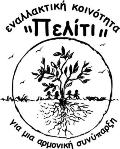 Biodiversity is a prerequisite for the continuation of life. Biodiversity in agriculture, in particular, is what ensures that we continue to have food. Unfortunately a disheartening amount of genetic erosion has already occurred. United Nations studies indicate that only 10% of traditional comestibles are still being cultivated today.
Biodiversity is a prerequisite for the continuation of life. Biodiversity in agriculture, in particular, is what ensures that we continue to have food. Unfortunately a disheartening amount of genetic erosion has already occurred. United Nations studies indicate that only 10% of traditional comestibles are still being cultivated today.
We declare ourselves determined to keep alive the cultivation and distribution of all surviving agricultural varieties. They are a precious natural resource that are a common good, reproduced freely by the farmer, unlike many industrial seeds.
Legislation, however, supports the criteria of uniformity and stability. These criteria are not appropriate for agricultural varieties, which are not uniform precisely because they have a broad genetic base. Nor are they stable because they are adapted to different environments. This broad genetic base, that is to say the large number of genes they possess, is essentially their great advantage because it provides them with the capacity to adapt to local conditions and to climatic change. Industrial seeds lack these advantages.
Legislation unfortunately transforms this immense advantage of adaptability into an obstacle to the free circulation of traditional seeds.
The traditional varieties that are being lost are (together with other semi-wild species) the parents of today?s varieties. They are the basis, in other words, not only of what we ate in the past but also what we will be eating in the future. Traditional seeds also need much less fertilizer and herbicide. The farmer does not have to spend much money on these inputs. Traditional varieties therefore acquire even greater importance in periods of economic crisis.
There exist traditional varieties that are very productive and possess characteristics that make them suitable for commercial use, being of higher nutritive quality and with a better taste. There are also others that are less productive than the Industrial varieties. They are all compatible with the multi-functional agricultural model of the small-to-medium farmer and for a type of environmentally friendly farming that is not intensive.
We are opposed to imposition of a developmental model for farming that expels traditional varieties from the market. In today?s situation of crisis young men and women who wish to try their luck at farming should have all options available to them when it comes to the type of farming they wish to pursue and the type of seeds they wish to use. It is for this reason that we demand freedom for traditional agricultural seeds and freedom for every farmer to opt for the agricultural model of his preference. Finally we demand that there should be a definitive cessation to the loss of agricultural biodiversity with a radical change in European legislation.
Let us strengthen the social movement for preservation of agricultural biodiversity. Let us learn once more to save seed and become guardians of traditional varieties and breeders of new agricultural varieties with a broad genetic base. When we have the knowledge, the seeds and the right attitude, nobody can force us into dependency on private lobbies and interests.
